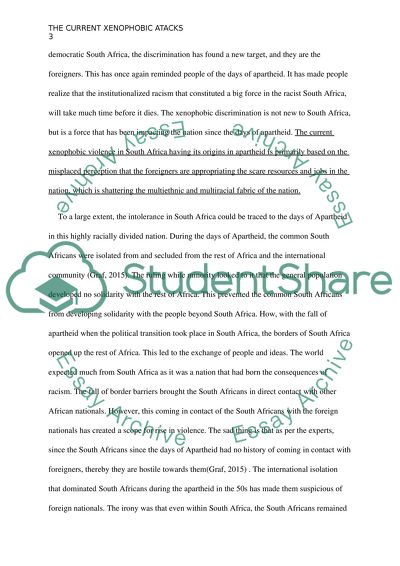Cite this document
(“The current xenophobic attacks in South Africa Research Paper”, n.d.)
Retrieved from https://studentshare.org/history/1691207-the-current-xenophobic-attacks-in-south-africa
Retrieved from https://studentshare.org/history/1691207-the-current-xenophobic-attacks-in-south-africa
(The Current Xenophobic Attacks in South Africa Research Paper)
https://studentshare.org/history/1691207-the-current-xenophobic-attacks-in-south-africa.
https://studentshare.org/history/1691207-the-current-xenophobic-attacks-in-south-africa.
“The Current Xenophobic Attacks in South Africa Research Paper”, n.d. https://studentshare.org/history/1691207-the-current-xenophobic-attacks-in-south-africa.


